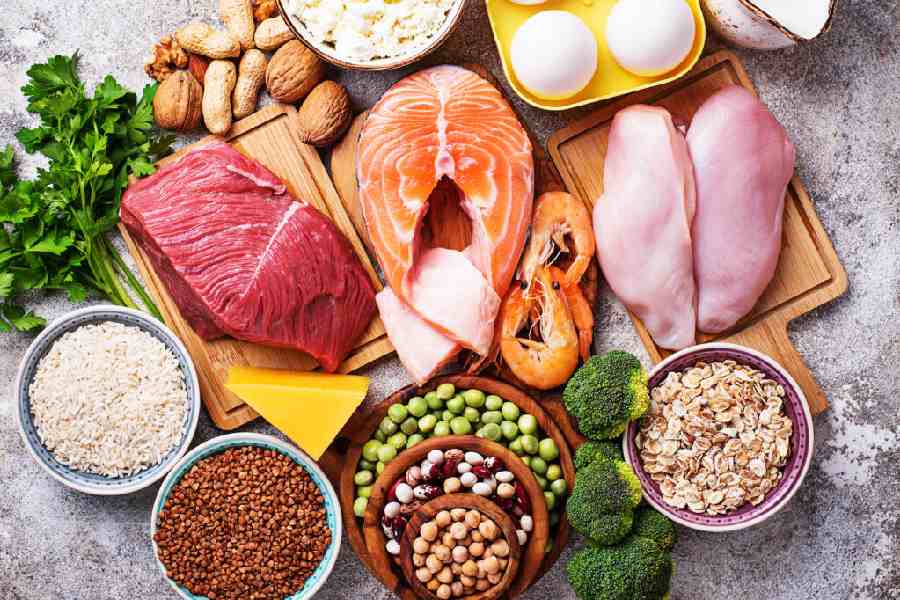The Indian Council of Medical Research has called for avoiding protein supplements for building body mass and has recommended restricting salt intake, minimising sugar and ultra-processed foods and reading information on food labels to make informed and healthy food choices.
The Hyderabad-based National Institute of Nutrition (NIN) under the apex health research body on Wednesday released revised 'Dietary Guidelines for Indians (DGIs)' to meet the requirements of essential nutrients and prevent non-communicable diseases (NCDs).
The DGIs have been drafted by a multi-disciplinary committee of experts led by Dr Hemalatha R, Director, ICMR-NIN and have undergone several scientific reviews. Seventeen guidelines have been listed in it.
In the DGIs, the NIN stated that prolonged intake of large amounts of protein powders or consumption of high protein concentrate has been associated with potential dangers such as bone mineral loss and kidney damage.
It also stated that sugar should be less than 5 per cent of total energy intake and a balanced diet should provide not more than 45 per cent calories from cereals, and millets and up to 15 per cent of calories from pulses, beans and meat.
The rest of the calories should come from nuts, vegetables, fruits and milk. Total fat intake should be less than or equal to 30 per cent energy, the guidelines said.
Due to the limited availability and high cost of pulses and meat, a significant proportion of the Indian population relies heavily on cereals, resulting in poor intake of essential macronutrients (essential amino acids and essential fatty acids) and micronutrients, it stated.
Low intake of essential nutrients can disrupt metabolism and increase the risk of insulin resistance and associated disorders from a young age. Estimates show that 56.4 per cent of the total disease burden in India is due to unhealthy diets, it said. Healthy diets and physical activity can reduce a substantial proportion of coronary heart disease (CHD) and hypertension (HTN) and prevent up to 80 per cent of type 2 diabetes.
"A significant proportion of premature deaths can be averted by following a healthy lifestyle," it said, adding that the upsurge in the consumption of highly processed foods laden with sugars and fats, coupled with reduced physical activity and limited access to diverse foods, aggravated micronutrient deficiencies and obesity.
Except for the headline, this story has not been edited by The Telegraph Online staff and has been published from a syndicated feed.










